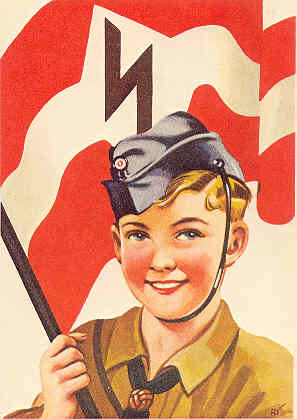Analysis of Nazi Propaganda: A Behavioral Study
For my Holocaust in History, Literature, and Film class taught by Professor Kevin Madigan, I decided to write my final paper on the behavioral analysis of Nazi propaganda.

As someone who is deeply interested in Behavioral Economics on a professional level, Nazi propaganda is a dark and fascinating topic. To understand the origins of Nazi propaganda, it is important to know Germany after World War I, hit by economic recession and paying for reparations from war.
Given the political and economic climate in Germany at the time, combined with the humiliation and unfairness of the Treaty of Versailles, the nation state was ripe for deception. Given this, Nazi propaganda machine focused on hyperboles of a few favorite themes that they knew would win them favors:
- Humiliation of Germany and the unfairness of the Versailles Treaty
- The weakness of Weimar parliamentary republic
- The evil of world Jewry, Bolshevism, and Capitalism, contrasted against the patriotic Nazi German
And while these were the dominant themes, the propaganda itself evolved to have a 3-fold focus:
- Deification of Hitler (e.g. as a messianic figure to be followed)
- Defining the enemy and justifying their treatment (e.g. Jews and Bolsheviks)
- Rallying the masses (e.g. for war and eugenics)
So, I focused my paper on studying the these themes through a behavioral lens to understand and identify key cognitive and psychological drivers that went into creating them, and the role that they played in instigating social and other cognitive biases in the German population. And while there are several types of cognitive biases, I focused on 3 major categories of biases:
- Social & Attributional Biases: These are biases that affect our social perception and the means through which we determine who or what was responsible for a particular action or situation.
- Memory Biases: These are biases that can either enhance or impair the recollection of a memory, either near-term or long-term.
- Decision-Making Biases: These are biases that impair our ability to make rational decisions despite evidence to the contrary. This includes biases in probability and belief that impact decision-making.
Given this, I came up with the key set of biases that they Nazis chose to trigger in the population, and came up with a framework to identify such propaganda should the public encounter it.
You can find a copy of the paper here: Analysis of Nazi Propaganda: A Behavioral Study.